The DNA of the Group is based on the words of the founder Mr. Ichibei Furukawa: "Value employees, value customers, value new technology, and contribute to society." We believe this philosophy aligns with the Sustainable Development Goals (SDGs) adopted by the United Nations and ESG management. With these thoughts of the founder and the SDGs in mind, we have formulated the Furukawa Electric Group Vision 2030. Vision 2030 shows the ideal state of the Group in 2030 when the SDGs are achieved, considering that we aim to solve international and regional social issues associated with the Group. By tackling the key management issues (material issues) that the Group must address, the Furukawa Electric Group aims to achieve Vision 2030 while contributing to the achievement of the SDGs.
Furukawa Electric Group’s ESG Management and Material Issues
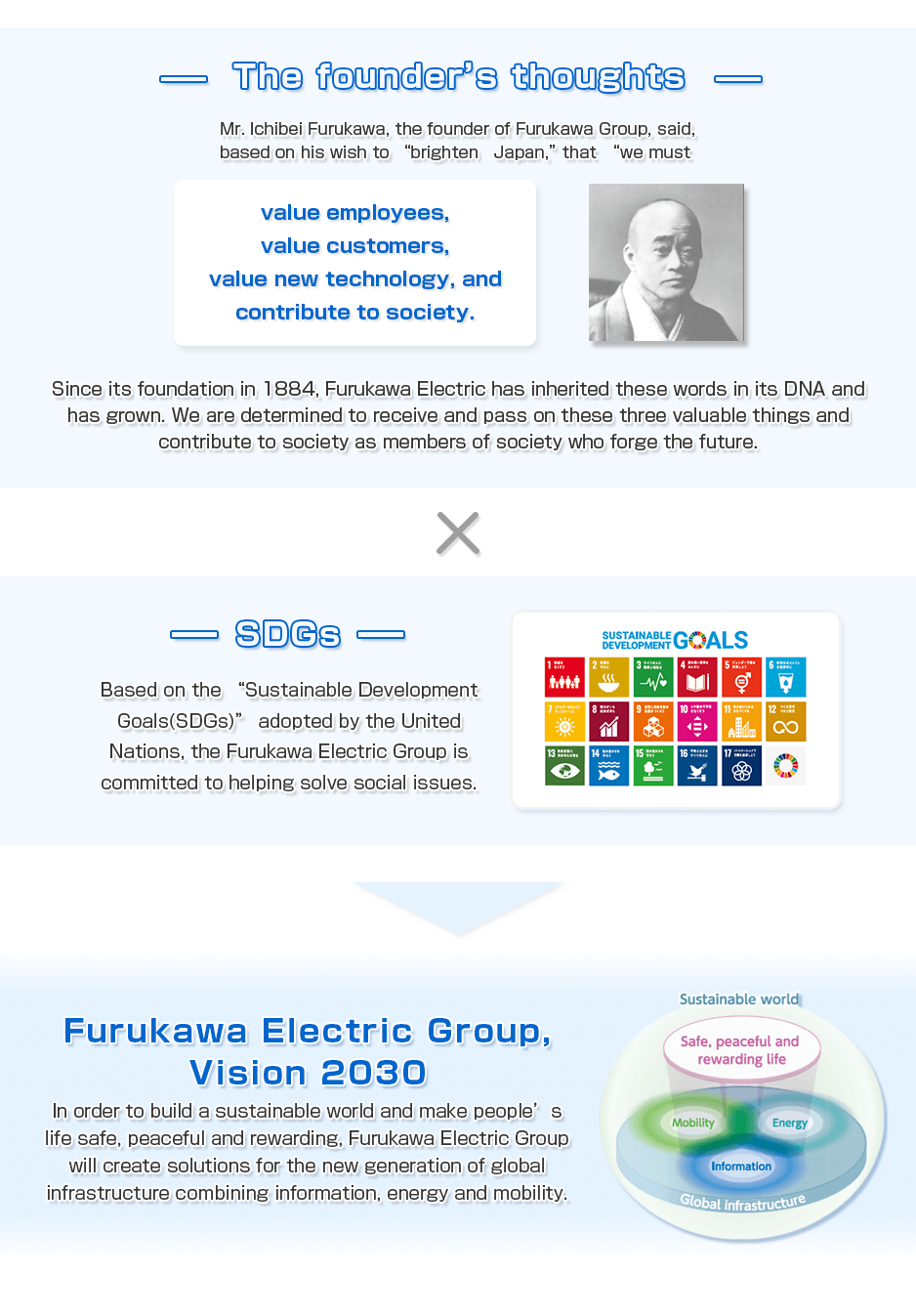
We proceed and identify what SDGs we should focus on to deal with. In order to do that, we examine which part our current major products contribute to the 17 goals and 169 targets of the SDGs using the value chain mapping of the SDG Compass. Here are some examples of the results of identification with significant impacts or distinctive characteristics.
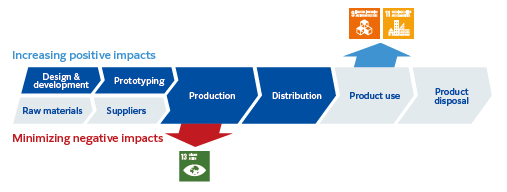
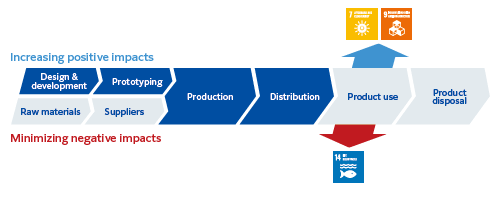

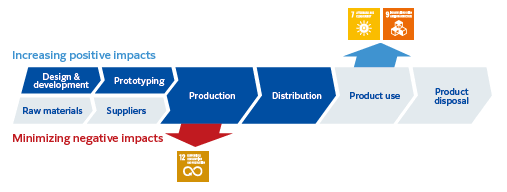
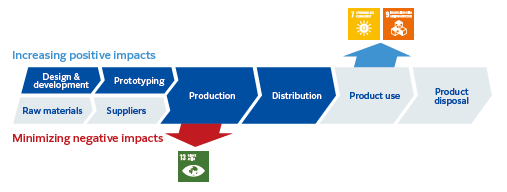
Furukawa Electric promotes the following initiatives.